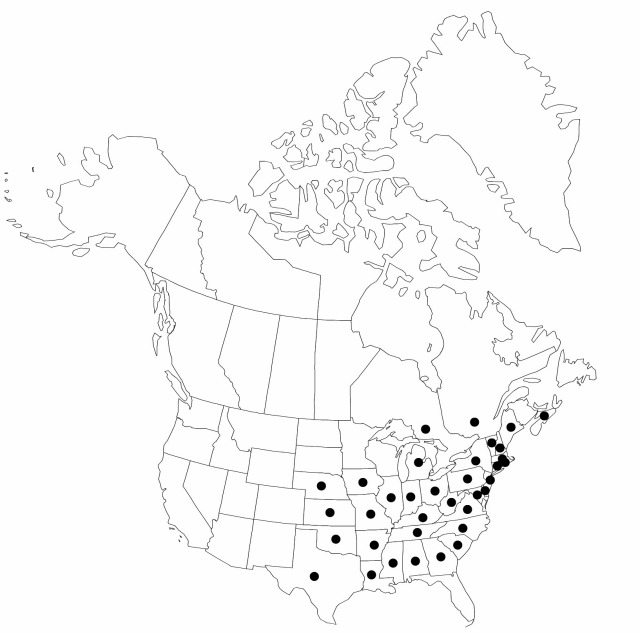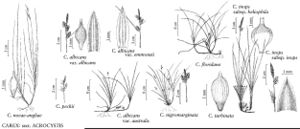familyCyperaceae
genusCarex
sectionCarex sect. Acrocystis
speciesCarex albicans
varietyCarex albicans var. albicans
Difference between revisions of "Carex albicans var. albicans"
IllustratedEndemic
Synonyms: Carex artitecta Mackenzie Carex emmonsii var. muhlenbergii Carex varia Muhlenberg
Treatment appears in FNA Volume 23. Treatment on page 541.
imported>Volume Importer |
imported>Volume Importer |
||
| Line 60: | Line 60: | ||
|publication year= | |publication year= | ||
|special status=Illustrated;Endemic | |special status=Illustrated;Endemic | ||
| − | |source xml=https:// | + | |source xml=https://bitbucket.org/aafc-mbb/fna-data-curation/src/2e0870ddd59836b60bcf96646a41e87ea5a5943a/coarse_grained_fna_xml/V23/V23_1020.xml |
|genus=Carex | |genus=Carex | ||
|section=Carex sect. Acrocystis | |section=Carex sect. Acrocystis | ||
Latest revision as of 21:38, 5 November 2020
Rhizomes ascending to erect, 0–5(–30) mm. Staminate spikes 8.4–11.1 × 1–1.8 mm; staminate scales from median portion of spike 2.9–3.7 × 1–1.4 mm, with weak or strong midrib usually not reaching apex of scale, usually without teeth on midrib. Perigynia 2.5–3.3 × 0.9–1.1 mm; beak with apical teeth 0.2–0.3 mm. 2n = 36.
Phenology: Fruiting mid Apr–early Jun.
Habitat: Mostly acidic, dry soils of sandstone and granite, also calcareous regions, wooded slopes, sandstone ridges, woodland clearings, in partial shade of deciduous forests, under cedars
Elevation: 50–800 m
Distribution

N.S., Ont., Que., Ala., Ark., Conn., Del., Ga., Ill., Ind., Iowa, Kans., Ky., La., Maine, Md., Mass., Mich., Miss., Mo., Nebr., N.H., N.J., N.Y., N.C., Ohio, Okla., Pa., R.I., S.C., Tenn., Tex., Vt., Va., W.Va.
Discussion
Selected References
None.
Lower Taxa
None.
... more about "Carex albicans var. albicans"
